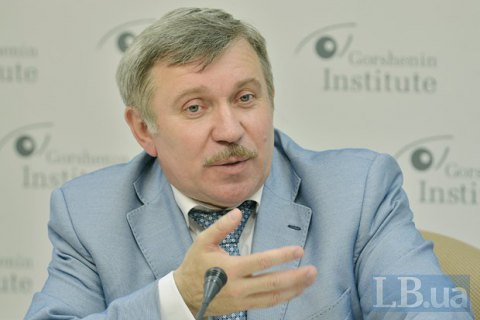All four power lines of the Crimea energy bridge are incapable of compensating for the shortage of electricity in the Russia-occupied peninsula.
"Russian territories on the other side of the Kerch Strait are short of capacities for production of electricity, so all the power lines are unable to resolve the problem of power supplies of the peninsula," President of Global Studies Center Strategy XXI, Mikhailo Honchar, said during a roundtable conference at the Gorshenin Institute on 26 May.
"The problem is that they need to switch the system of energy supplies to the Crimean peninsula from "north-south " to"west-east" direction, which means a radical restructuring of the whole energy grid"
The expert explained that while before the occupation the city of Kerch was a "dead end" of Ukraine's energy system, now it has to turn into a receiving end of the power hub.
Honchar also noted that the Russian south in general and the Krasnodar Krai in particular are power-hungry areas, and will remain so until 2019 when a new unit of the Rostov nuclear power plant is slated to be commissioned.
"The inhabitants of the Crimea, therefore, a in for blackouts, both caused by power system malfunctions and the works that are underway to satisfy the needs of the Russia's armed forces, headquartered there," he said.
The expert believes that the electricity problems in Crimea will remain for another 4 or 5 years.
From December to May, Russia has launched a four-thread power bridge to the Crimea from the mainland Russia. According to Russian authorities, the peninsula's current power capacities are at 1,270 MW, while the expected level of consumption this summer is 1100-1150 MW.








